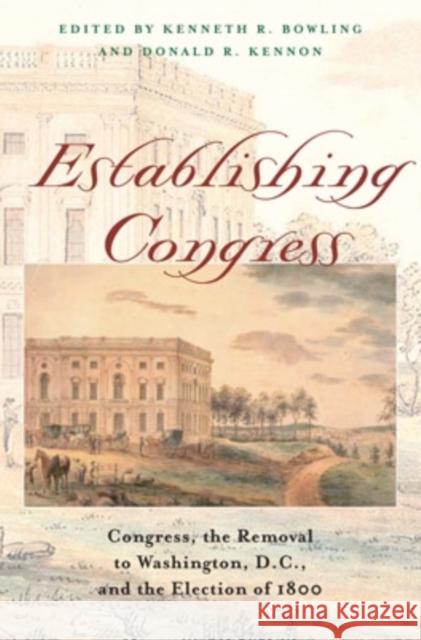Establishing Congress: The Removal to Washington, D.C., and the Election of 1800 » książka
Establishing Congress: The Removal to Washington, D.C., and the Election of 1800
ISBN-13: 9780821416198 / Angielski / Twarda / 2005 / 225 str.
Establishing Congress: The Removal to Washington, D.C., and the Election of 1800 focuses on the end of the 1790s, when, in rapid succession, George Washington died, the federal government moved to Washington, D.C., and the election of 1800 put Thomas Jefferson and the Democratic-Republican party in charge of the federal government.Establishing Congress dispels the myths and misinformation that surround the federal government's move to Washington and demonstrates that the election of 1800 changed American party politics forever, established the success of the American experiment in government, and completed the founding of the Republic. It also contends that the lame-duck session of Congress had far-reaching implications for the governance of the District of Columbia. Later chapters examine aspects of the political iconography of the capitol---one illuminating Jefferson's role in turning the building into a temple for the legislature and an instrument for nation-building, another examining the fascinating decades-long debate over burying George Washington in the Capitol. The collection considers as well the political implications of social life in early Washington, examining the political lobbying by Washington women within a social context and detailing the social and political life in the city's homes, hotels, boardinghouses and eating messes. Establishing Congress is an invaluable reference work for anyone interested in these pivotal moments in American history.Kenneth R. Bowling is co-editor, with Donald R. Kennon, of Inventing Congress: Origins and Establishment of the First Federal Congress (Ohio, 1999), Neither Separate nor Equal: Congress in the 1790s (Ohio, 2000), and The House and Senate in the 1790s: Petitioning, Lobbying, and Institutional Development (Ohio, 2002).Donald R. Kennon is chief historian of the U.S. Capitol Historical Society. He is general editor of the Ohio University Press series Perspectives on the History of Congress, 1789?1801, which contains the present volume, and the series Perspectives on the Art and Architectural History of the United States Capitol.











